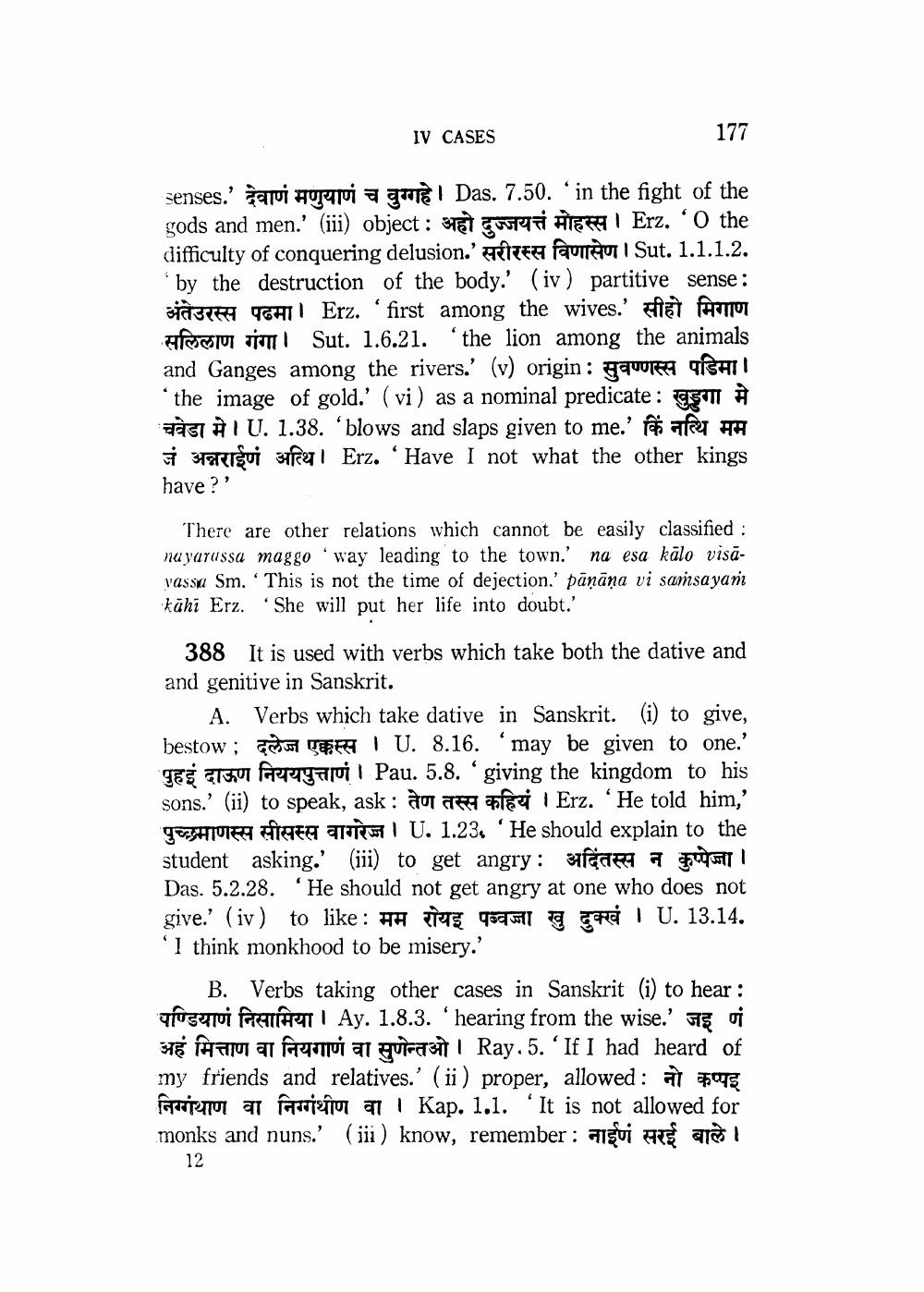________________
IV CASES
177
senses.' qui foetui a ani Das. 7.50. 'in the fight of the gods and men.' (iii) object : CART HEFTI Erz. “O the difficulty of conquering delusion.' ITEA Fairtot i Sut. 1.1.1.2. * by the destruction of the body.' (iv) partitive sense :
अंतेउरस्स पढमा। Erz. — first among the wives.' सीहो मिगाण A m im I Sut. 1.6.21. 'the lion among the animals and Ganges among the rivers.' (v) origin : gauurki SATI
the image of gold.' (vi) as a nominal predicate: CE # FÀCT ÀI U. 1.38. 'blows and slaps given to me.' Per af HA † Frisui 41 Erz. 'Have I not what the other kings have?'
There are other relations which cannot be easily classified: na yarussa maggo 'way leading to the town.' na esa kālo visāvassa Sm. ' This is not the time of dejection.' pāņāņa vi samsayar kāhi Erz. She will put her life into doubt.'
388 It is used with verbs which take both the dative and and genitive in Sanskrit.
A. Verbs which take dative in Sanskrit. (i) to give, bestow ; TER I U. 8.16. 'may be given to one.' TESTS fareigai I Pau. 5.8.' giving the kingdom to his sons.' (ii) to speak, ask : aor aka DETI Erz. 'He told him,' GOSHUIRI AFA ANTTI U. 1.23. 'He should explain to the student asking.' (iii) to get angry: Efatha a FUSTI Das. 5.2.28. 'He should not get angry at one who does not give. (iv) to like: HH Sie 932571 tagere I U. 13.14. 'I think monkhood to be misery.'
B. Verbs taking other cases in Sanskrit (i) to hear : qfUETTİ ATAT I Ay. 1.8.3. 'hearing from the wise. Age oi SE A FIM at faraonui an gurash Ray. 5. 'If I had heard of my friends and relatives.' (ii) proper, allowed: at 20 Fancier at faporiefm 97 | Kap. 1.1. 'It is not allowed for monks and nuns.' (iii) know, remember : algui A ars i
12




